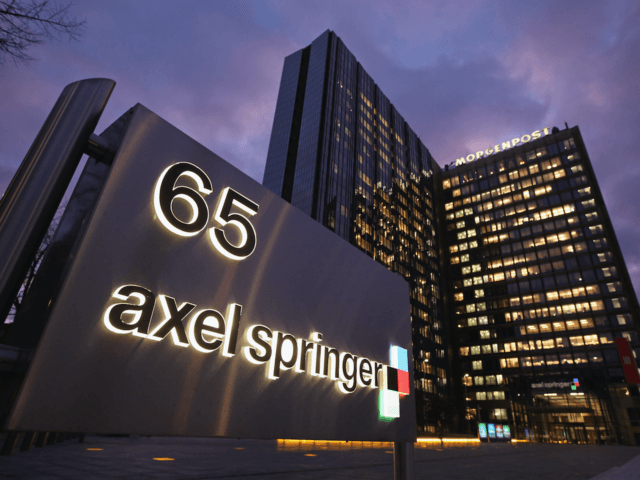Europe’s largest digital publishing house is joining up with the News Media Alliance (NMA), a U.S. trade association, to lobby in America and take on Google and Facebook and their grip on advertising revenue.
Germany’s Axel Springer is the first non-American partner to join the NMA, which represents and lobbies on behalf of the print and digital news industry, and the development represents a new stage in the struggle between old and new media.
The NMA is currently pushing for a limited antitrust exemption from Congress so it can win the right to negotiate collectively with online platforms including Facebook and Google, whilst Axel Spring has also been taking on the Internet giants.
“For us, its a new beginning of working on political matters in the United States and its very important that different publishers… are defining their interests toward search engines and news aggregators so we compete on a level playing field and to get a value chain that helps both sides to survive,” Dietrich von Klaeden, Axel Springer’s senior vice president for public affairs, told CNN.
The trans-Atlantic mainstream media alliance could be seen as strengthening media monopolies. Yet, it could also be viewed as encouraging competition as the old media firms take on Google and Facebook, which together control around two-thirds of online advertising revenue.
Mainstream media bias? Tell me it isn't so… 😏 https://t.co/g2f3HOVeUE
— Breitbart London (@BreitbartLondon) July 21, 2017
Axel Springer owns some of Germany’s biggest papers, including Bild and Die Welt, and is partnered with POLITICO Europe. It also owns the U.S. website Business Insider.
The online revolution has made geographic barriers less important in the news and publishing industries, and Axel Springer will bring new expertise to take on Google and Facebook in the struggle for advertising money, News Media Alliance president David Chavern claimed.
“We’ve never had a European-based member before and what it does is signal in a world of convergence that the publishers are really all getting together. We’re working on getting news publishers no matter where they’re located aligned,” Mr. Chavern added.
“Frankly, it plays to Google and Facebook’s advantage in particular that we are all in our cubby holes and talking only about European or U.S. business, but in reality, they’re international problems.”

COMMENTS
Please let us know if you're having issues with commenting.